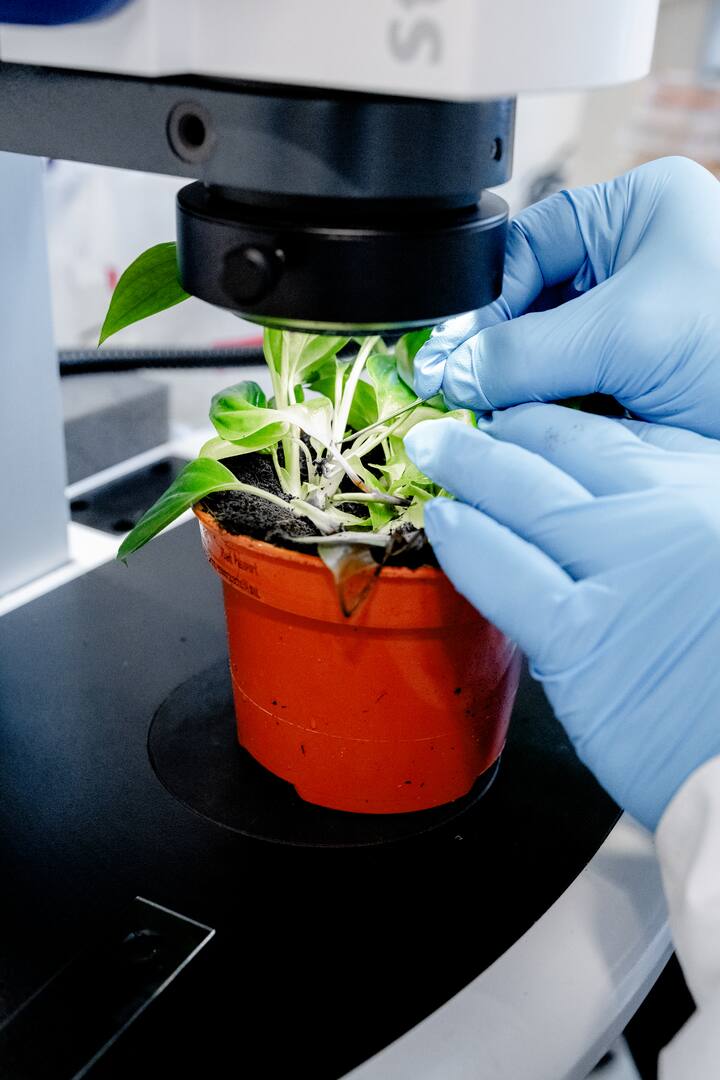
Horticulture is changing rapidly. How can you, as a grower, stay in control?
By Klaas-Jan de Ruiter, Commercial Manager at Normec Groen Agro Control
The horticulture sector is moving at high speed. Mergers, specialisation, stricter retail requirements and societal pressure make the playing field more complex than ever. To stay competitive, you need to act fast, think strategically and surround yourself with the right partners. Klaas-Jan de Ruiter knows all about it. Since November 2024, he has been Commercial Manager at Normec Groen Agro Control. Before that, he worked for many years in various technical and commercial roles within horticulture. He knows the sector inside out, from substrates and climate control to cultivation and marketing.
“What drives me is translating complex, real-world challenges into practical solutions,” Klaas-Jan says. “That requires in-depth knowledge and the ability to connect the right people. That is exactly what makes this work so enjoyable.”
Scaling up demands precision
Klaas-Jan witnesses the changes in the sector up close. Smaller businesses are disappearing, while large players are becoming increasingly specialised. That creates higher risks. “In the past, a grower might have cultivated 50 different plant varieties. If one failed, the damage was manageable. Now you often see large operations focusing entirely on one crop. Any issue can have a major impact. You need to respond faster and work with much greater precision.”
This shift demands better insight into what is happening in the crop. “Not only in terms of nutrition, water quality or plant health, but especially in how to interpret that information. A test result alone is not enough. You need to know what it means and how to act on it.”

Retail sets the pace
The sales side is also evolving. Retailers are setting increasingly high standards: residue-free products, transparency, year-round consistent quality. “Seasons are fading, performance expectations are rising, and we see that reflected in the questions we get. Grower cooperatives and international partnerships are becoming more important. At the same time, the pressure on Dutch growers is increasing.”
Yet Klaas-Jan does not see that pressure solely as a threat. “The Netherlands is leading the way in sustainability and technology. Think of combined heat and power (CHP), water and nutrient recycling, and residual heat supplied to residential areas. These are high-tech solutions we can be proud of. But to keep that lead, we must continue optimising. How can you achieve the best possible product with the least possible input?”
Diagnostics as a key link
Especially in large-scale, specialised cultivation, a disease or disorder can cause significant damage. “Diagnostics are becoming increasingly important. We receive samples from all over the world. Down to the DNA level, we can identify the cause of a crop problem. But we go beyond just delivering a result. We also help determine the next step. That is where our strength lies.”
The same applies to other analyses, such as water quality, nutrient solutions or residue testing. “An analysis is not the end point, but the start of a good conversation. Clients often know what they want to measure, but not always how or why. We help them set the right course.”
Do you have a question for Klaas-Jan?
The power of connecting
What sets Klaas-Jan apart is his ability to connect knowledge and people. “I enjoy sitting down with a client, listening carefully and asking the right questions. Then I pass the request internally to the specialist best suited to provide the answer. That way, we work together towards a solution that truly works.”
Within Normec, he increasingly collaborates with colleagues from other entities. “Client questions often cross multiple disciplines. By working together smartly, we tackle those challenges in an integrated way. That makes us stronger and more relevant.”
Looking ahead: precision, partnership and practical expertise
According to Klaas-Jan, the future of horticulture lies in finding the right balance between technology and practice, speed and certainty, innovation and insight. “If you want to be future-proof, you need reliable data. But even more important are the people who can interpret that data. That is where we make the difference.”